
Performing live at London's The Vortex in 1996, two extended exuberant improvisations from the trio of Evan Parker on tenor & soprano sax, Barry Guy on double bass, and Paul Lytton on drums & percussion, perhaps the most ferocious and relaxed example of this trio on record.
Out of Stock
Quantity in Basket: None
Log In to use our Wish List
Shipping Weight: 5.00 units
Sample The Album:
Evan Parker-tenor saxophone, soprano saxophone
Barry Guy-doublebass
Paul Lytton-percussion, drums, cymbal
Click an artist name above to see in-stock items for that artist.
UPC: 5030243402229
Label: Emanem
Catalog ID: 4022
Squidco Product Code: 18401
Format: CD
Condition: New
Released: 1998
Country: Great Britain
Packaging: Jewel Case
Recorded at The Vortex, in London, England, on June 26th, 1996, by Martin Davidson.
"On At the Vortex, which was indeed recorded at The Vortex in London in 1996, there are only two long tracks, representing the music from each set played that night (June 26). Parker sticks to tenor for the first set, spinning his brusque lines against a high level of activity from Lytton. The second set begins with one of the saxophonist's trademark circular-breathing whirligigs, a la the remarkable Conic Sections. The accompanists creep in after awhile, not long before our man switches back to tenor. This was one great night for all three: Both sets are tapestries of moods and textbook examples of how free playing can remain fresh and imaginative. For the attentive listener, At the Vortex will become one of this deservedly celebrated trio's most rewarding recordings."-Robert spencer, allaboutjazz.com
Artist Biographies
• Show Bio for Evan Parker "Evan Parker was born in Bristol in 1944 and began to play the saxophone at the age of 14. Initially he played alto and was an admirer of Paul Desmond; by 1960 he had switched to tenor and soprano, following the example of John Coltrane, a major influence who, he would later say, determined "my choice of everything". In 1962 he went to Birmingham University to study botany but a trip to New York, where he heard the Cecil Taylor trio (with Jimmy Lyons and Sunny Murray), prompted a change of mind. What he heard was "music of a strength and intensity to mark me for life ... l came back with my academic ambitions in tatters and a desperate dream of a life playing that kind of music - 'free jazz' they called it then." Parker stayed in Birmingham for a time, often playing with pianist Howard Riley. In 1966 he moved to London, became a frequent visitor to the Little Theatre Club, centre of the city's emerging free jazz scene, and was soon invited by drummer John Stevens to join the innovative Spontaneous Music Ensemble which was experimenting with new kinds of group improvisation. Parker's first issued recording was SME's 1968 Karyobin, with a line-up of Parker, Stevens, Derek Bailey, Dave Holland and Kenny Wheeler. Parker remained in SME through various fluctuating line-ups - at one point it comprised a duo of Stevens and himself - but the late 1960s also saw him involved in a number of other fruitful associations. He began a long-standing partnership with guitarist Bailey, with whom he formed the Music Improvisation Company and, in 1970, co-founded Incus Records. (Tony Oxley, in whose sextet Parker was then playing, was a third co-founder; Parker left Incus in the mid-1980s.) Another important connection was with the bassist Peter Kowald who introduced Parker to the German free jazz scene. This led to him playing on Peter Brötzmann's 1968 Machine Gun, Manfred Schoof's 1969 European Echoes and, in 1970, joining pianist Alex von Schlippenbach and percussionist Paul Lovens in the former's trio, of which he is still a member: their recordings include Pakistani Pomade, Three Nails Left, Detto Fra Di Noi, Elf Bagatellen and Physics. Parker pursued other European links, too, playing in the Pierre Favre Quartet (with Kowald and Swiss pianist Irene Schweizer) and in the Dutch Instant Composers Pool of Misha Mengelberg and Han Bennink. The different approaches to free jazz he encountered proved both a challenging and a rewarding experience. He later recalled that the German musicians favoured a "robust, energy-based thing, not to do with delicacy or detailed listening but to do with a kind of spirit-raising, a shamanistic intensity. And l had to find a way of surviving in the heat of that atmosphere ... But after a while those contexts became more interchangeable and more people were involved in the interactions, so all kinds of hybrid musics came out, all kinds of combinations of styles." A vital catalyst for these interactions were the large ensembles in which Parker participated in the 1970s: Schlippenbach's Globe Unity Orchestra, Chris McGregor's Brotherhood of Breath, Barry Guy's London Jazz Composers Orchestra (LJCO) and occasional big bands led by Kenny Wheeler. In the late 70s Parker also worked for a time in Wheeler's small group, recording Around Six and, in 1980, he formed his own trio with Guy and LJCO percussionist Paul Lytton (with whom he had already been working in a duo for nearly a decade). This group, together with the Schlippenbach trio, remains one of Parker's top musical priorities: their recordings include Tracks, Atlanta, Imaginary Values, Breaths and Heartbeats, The Redwood Sessions and At the Vortex. In 1980, Parker directed an Improvisers Symposium in Pisa and, in 1981, he organised a special project at London's Actual Festival. By the end of the 1980s he had played in most European countries and had made various tours to the USA, Canada, Australia, New Zealand and Japan. ln 1990, following the death of Chris McGregor, he was instrumental in organising various tributes to the pianist and his fellow Blue Notes; these included two discs by the Dedication Orchestra, Spirits Rejoice and lxesa. Though he has worked extensively in both large and small ensembles, Parker is perhaps best known for his solo soprano saxophone music, a singular body of work that in recent years has centred around his continuing exploration of techniques such as circular breathing, split tonguing, overblowing, multiphonics and cross-pattern fingering. These are technical devices, yet Parker's use of them is, he says, less analytical than intuitive; he has likened performing his solo work to entering a kind of trance-state. The resulting music is certainly hypnotic, an uninterrupted flow of snaky, densely-textured sound that Parker has described as "the illusion of polyphony". Many listeners have indeed found it hard to credit that one man can create such intricate, complex music in real time. Parker's first solo recordings, made in 1974, were reissued on the Saxophone Solos CD in 1995; more recent examples are Conic Sections and Process and Reality, on the latter of which he does, for the first time, experiment with multi-tracking. Heard alone on stage, few would disagree with writer Steve Lake that "There is, still, nothing else in music - jazz or otherwise - that remotely resembles an Evan Parker solo concert." While free improvisation has been Parker's main area of activity over the last three decades, he has also found time for other musical pursuits: he has played in 'popular' contexts with Annette Peacock, Scott Walker and the Charlie Watts big band; he has performed notated pieces by Gavin Bryars, Michael Nyman and Frederic Rzewski; he has written knowledgeably about various ethnic musics in Resonance magazine. A relatively new field of interest for Parker is improvising with live electronics, a dialogue he first documented on the 1990 Hall of Mirrors CD with Walter Prati. Later experiments with electronics in the context of larger ensembles have included the Synergetics - Phonomanie III project at Ullrichsberg in 1993 and concerts by the new EP2 (Evan Parker Electronic Project) in Berlin, Nancy and at the 1995 Stockholm Electronic Music Festival where Parker's regular trio improvised with real-time electronics processed by Prati, Marco Vecchi and Phillip Wachsmann. "Each of the acoustic instrumentalists has an electronic 'shadow' who tracks him and feeds a modified version of his output back to the real-time flow of the music." The late 80s and 90s brought Parker the chance to play with some of his early heroes. He worked with Cecil Taylor in small and large groups, played with Coltrane percussionist Rashied Ali, recorded with Paul Bley: he also played a solo set as support to Ornette Coleman when Skies of America received its UK premiere in 1988. The same period found Parker renewing his acquaintance with American colleagues such as Anthony Braxton, Steve Lacy and George Lewis, with all of whom he had played in the 1970s (often in the context of London's Company festivals). His 1993 duo concert with Braxton moved John Fordham in The Guardian to raptures over "saxophone improvisation of an intensity, virtuosity, drama and balance to tax the memory for comparison". Parker's 50th birthday in 1994 brought celebratory concerts in several cities, including London, New York and Chicago. The London performance, featuring the Parker and Schlippenbach trios, was issued on a highly-acclaimed two-CD set, while participants at the American concerts included various old friends as well as more recent collaborators in Borah Bergman and Joe Lovano. The NYC radio station WKCR marked the occasion by playing five days of Parker recordings. 1994 also saw the publication of the Evan Parker Discography, compiled by ltalian writer Francesco Martinelli, plus chapters on Parker in books on contemporary musics by John Corbett and Graham Lock. Parker's future plans involve exploring further possibilities in electronics and the development of his solo music. They also depend to a large degree on continuity of the trios, of the large ensembles, of his more occasional yet still long-standing associations with that pool of musicians to whose work he remains attracted. This attraction, he explained to Coda's Laurence Svirchev, is attributable to "the personal quality of an individual voice". The players to whom he is drawn "have a language which is coherent, that is, you know who the participants are. At the same time, their language is flexible enough that they can make sense of playing with each other ... l like people who can do that, who have an intensity of purpose." " ^ Hide Bio for Evan Parker • Show Bio for Barry Guy "Barry John Guy (born 22 April 1947, in London) is a British composer and double bass player. His range of interests encompasses early music, contemporary composition, jazz and improvisation, and he has worked with a wide variety of orchestras in the UK and Europe. He also taught at Guildhall School of Music. Born in London, Guy came to the fore as an improvising bassist as a member of a trio with pianist Howard Riley and drummer Tony Oxley (Witherden, 1969). He also became an occasional member of John Stevens' ensembles in the 1960s and 1970s, including the Spontaneous Music Ensemble. In the early 1970s, he was a member of the influential free improvisation group Iskra 1903 with Derek Bailey and trombonist Paul Rutherford (a project revived in the late 1970s, with violinist Philipp Wachsmann replacing Bailey). He also formed a long-standing partnership with saxophonist Evan Parker, which led to a trio with drummer Paul Lytton which became one of the best-known and most widely travelled free-improvising groups of the 1980s and 1990s. He was briefly a member of the Michael Nyman Band in the 1980s, performing on the soundtrack of The Draughtsman's Contract. Guy's interests in improvisation and formal composition received their grandest form in the London Jazz Composers Orchestra. Originally formed to perform Guy's composition Ode in 1972 (released as a 2-LP set on Incus and later, in expanded form, as a 2-CD set on Intakt), it became one of the great large-scale European improvising ensembles. Early documentation is spotty - the only other recording from its early years is Stringer (FMP, now available on Intakt paired with the later "Study II") - but beginning in the late 1980s the Swiss label Intakt set out to document the band more thoroughly. The result was a series of ambitious, album-length compositions designed to give all the players in the band maximum opportunity for expression while still preserving a rigorous sense of form: Zurich Concerts, Harmos, Double Trouble (originally written for an encounter with Alexander von Schlippenbach's Globe Unity Orchestra, though the eventual CD was just for the LJCO), Theoria (a concerto for guest pianist Irène Schweizer), Three Pieces, and Double Trouble Two. The group's activities subsided in the mid-1990s, but it was never formally disbanded, and reconvened in 2008 for a one-off concert in Switzerland. In the mid-1990s Guy also created a second, smaller ensemble, the Barry Guy New Orchestra. Guy has also written for other large improvising ensembles, such as the NOW Orchestra and ROVA (the piece Witch Gong Game inspired by images by the visual artist Alan Davie). His current improvising activities include piano trios with Marilyn Crispell and Agusti Fernandez. He has also recorded several albums for ECM, which often focus on the interface between improvisers and electronics, including his work in Evan Parker's Electro-Acoustic Ensemble and his own Ceremony. Guy's session work in the pop field includes playing double bass on the song "Nightporter", from the Japan album Gentlemen Take Polaroids. He is married to the early music violinist Maya Homburger. After spending some years in Ireland, they now live in Switzerland. They run the small label Maya, which releases a variety of records in the genres of free improvisation, baroque music and contemporary composition. Guy's jazz work is characterised by free improvisation, using a range of unusual playing methods: bowed and pizzicato sounds beneath the bass's bridge; plucking the strings above the left hand; beating the strings with percussion instrument mallets; and "preparing" the instrument with sticks and other implements inserted between the strings and fingerboard. His improvisations are often percussive and unpredictable, inhabiting no discernible harmonic territory and pushing into unknown regions. However, they can also be melodious and tender with due regard for harmonic integration with other players, and at times he will even play with a straight jazz swing feel. Similarly, in his concert works, Guy manages to alternate harmonic and rhythmic complexity worthy of 1960s experimentalists such as Penderecki and Stockhausen with joyous, often ecstatic, melody. Works such as "Flagwalk" for string orchestra and "Fallingwater - Concerto for Orchestra" display Guy's compositional skill in handling extended forms and writing for large instrumental groups. Some of his compositions, such as "Witch Gong Game" for ensemble, use graphic notation in conjunction with cue cards to lead performers into playing and improvising material from numbered sections of the score. He is also an architect." ^ Hide Bio for Barry Guy • Show Bio for Paul Lytton "Paul Lytton (born 8 March 1947, London) is an English free jazz percussionist. Lytton began on drums at age 16. He played jazz in London in the late 1960s while taking lessons on the tabla from P.R. Desai. In 1969 he began experimenting with free improvisational music, working in a duo with saxophonist Evan Parker. After adding bassist Barry Guy, the ensemble became the Evan Parker Trio. He and Parker continued to work together into the 2000s; more recent releases include trio releases with Marilyn Crispell in 1996 (Natives and Aliens) and 1999 (After Appleby). A founding member of the London Musicians Collective, Lytton worked extensively on the London free improvisation scene in the 1970s, and aided Paul Lovens in the foundation of the Aachen Musicians' Cooperative in 1976. Lytton has toured North America and Japan both solo and with improvisational ensembles. In 1999, he toured with Ken Vandermark and Kent Kessler, and recorded with Vandermark on English Suites. Lytton also collaborated with Jeffrey Morgan (alto & tenor saxophone), with whom he recorded the CD "Terra Incognita" Live in Cologne, Germany. He played also on White Noise's pioneer electronic pop music album An Electric Storm in 1969." ^ Hide Bio for Paul Lytton
11/20/2024
Have a better biography or biography source? Please Contact Us so that we can update this biography.
11/20/2024
Have a better biography or biography source? Please Contact Us so that we can update this biography.
11/20/2024
Have a better biography or biography source? Please Contact Us so that we can update this biography.
Track Listing:
1. First Set 38:19
2. Second Set 40:26
Improvised Music
London & UK Improv & Related Scenes
Free Improvisation
Trio Recordings
Parker, Evan
EMANEM & psi
Instant Rewards
Search for other titles on the label:
Emanem.


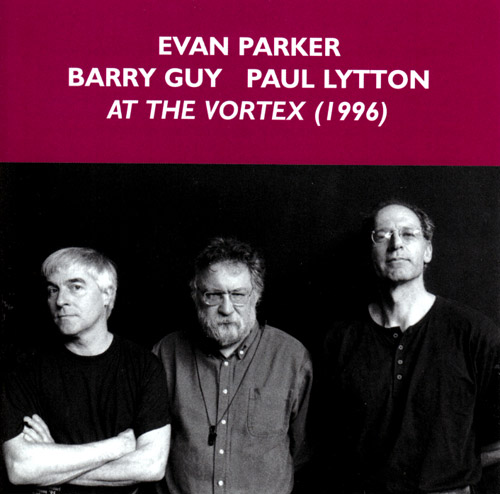


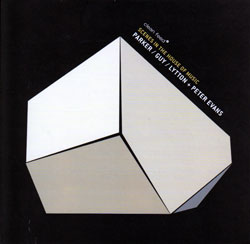
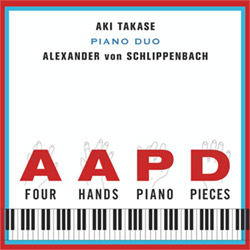
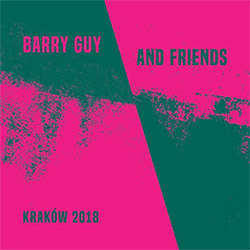
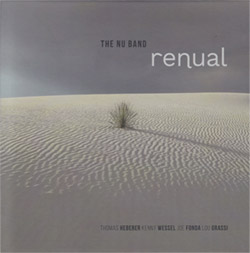
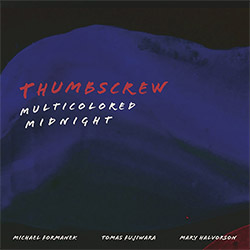

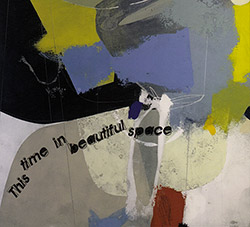

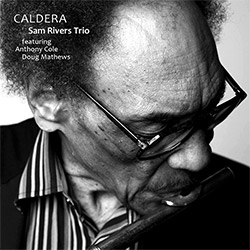


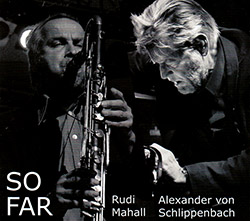




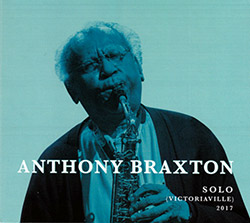

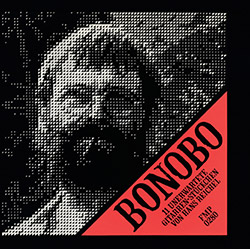



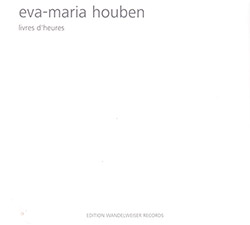



![Guy, Barry / Ken Vandermark: Occasional Poems [2 CDs]](https://www.teuthida.com/productImages/misc4/34849.jpg)
![Novoa / Carter / Mela Trio: Vol.1 [VINYL]](https://www.teuthida.com/productImages/misc4/35236.jpg)


![Elephant9 : Mythical River [VINYL]](https://www.teuthida.com/productImages/misc4/34624.jpg)
![Evans, Peter (Evans / Eldh / Black): Extra [VINYL]](https://www.teuthida.com/productImages/misc4/35279.jpg)

![McPhee, Joe: Straight Up, Without Wings [BOOK]](https://www.teuthida.com/productImages/misc4/35454.jpg)
![Jeck, Philip: rpm [2 CDs]](https://www.teuthida.com/productImages/misc4/35455.jpg)













![Barker / Parker / Irabagon: Bakunawa [VINYL]](https://www.teuthida.com/productImages/misc4/35533.jpg)
![Blaser, Samuel / Marc Ducret / Peter Bruun: Dark Was The Night, Cold Was The Ground [VINYL 10-inch]](https://www.teuthida.com/productImages/misc4/35492.jpg)








![Warren, Kenny (Warren / Hoffman / Ellman): Sweet World [VINYL]](https://www.teuthida.com/productImages/misc4/35451.jpg)




![Blake, Ran / Dave Knife Fabris: Live Amsterdam 2006, First Visit [CD + POSTCARDS]](https://www.teuthida.com/productImages/misc4/35275.jpg)













![DNS: Taking Big Bites Of The Khandas Three Cafes Deep [2 CDs]](https://www.teuthida.com/productImages/misc4/35334.jpg)




![Cleaver, Gerald: The Process [VINYL]](https://www.teuthida.com/productImages/misc4/34966.jpg)




![Alva Noto: HYbr:ID II [VINYL 2 LPs]](https://www.teuthida.com/productImages/misc4/35201.jpg)

![Baron, Derek / Luke Martin: Distinct and Concealed [CASSETTE + DOWNLOAD]](https://www.teuthida.com/productImages/misc4/35079.jpg)

![Lyle, Erica Dawn : Colonial Motels [CASSETTE + DOWNLOAD]](https://www.teuthida.com/productImages/misc4/35080.jpg)









![Sanna, Claudio: Compositori Sardi Contemporanei II [2 CDs]](https://www.teuthida.com/productImages/misc4/35317.jpg)







![Zurria, Manuel: Fame di Vento [3 CDs]](https://www.teuthida.com/productImages/misc4/35167.jpg)

![Granberg, Magnus / Nattens Inbrott / Skogen: Holde Traume, Kehret Wieder! [2 CDs]](https://www.teuthida.com/productImages/misc4/35038.jpg)
![Frey, Jurg: Outermost Melodie [2 CDs]](https://www.teuthida.com/productImages/misc4/35039.jpg)

![Pavone, Jessica: Reverse Bloom [VINYL]](https://www.teuthida.com/productImages/misc4/34895.jpg)




![Modney (Modney / Wooley / Gentile / Roberts / Pluta / Symthe / ...): Ascending Primes [2 CDs]](https://www.teuthida.com/productImages/misc4/34852.jpg)









![Elephant9 with Terje Rypdal: Catching Fire [VINYL 2 LPs]](https://www.teuthida.com/productImages/misc4/35355.jpg)
![Deerlady (Obomsawin, Mali / Magdalena Abrego): Greatest Hits [VINYL]](https://www.teuthida.com/productImages/misc4/34876.jpg)




![Haino, Keiji: Black Blues [2 CDs]](https://www.teuthida.com/productImages/misc4/35109.jpg)



![Surplus 1980: Illusion of Consistency [CD]](https://www.teuthida.com/productImages/misc4/35069.jpg)
![Staiano, Moe: Away Towards the Light [VINYL + DOWNLOAD]](https://www.teuthida.com/productImages/misc4/35037.jpg)



![Caveira (Gomes / Sousa / Abras / Ferrandini): Ficar Vivo [VINYL]](https://www.teuthida.com/productImages/misc4/34643.jpg)
![Gregg, J. J. / David Van Auken: Lunar Prairie [CD w/ DOWNLOAD]](https://www.teuthida.com/productImages/misc4/34611.jpg)

![Coultrain: Mundus [VINYL]](https://www.teuthida.com/productImages/misc4/32439.jpg)
![Mattin: Songbook #6 [VINYL]](https://www.teuthida.com/productImages/misc4/27317.jpg)
![Punkappella: Wake Up [7-inch VINYL]](https://www.teuthida.com/productImages/misc4/17519.jpg)
![Residents, The: WARNING: UNiNC.: Live And Experimental Recordings 1971-1972 [VINYL 2 LPs]](https://www.teuthida.com/productImages/misc4/31521.jpg)
![Coultrain: Phantasmagoria [VINYL]](https://www.teuthida.com/productImages/misc4/30142.jpg)
![Lennon, Sean Ono: Asterisms [VINYL]](https://www.teuthida.com/productImages/misc4/34517.jpg)

![Coley, Byron: Dating Tips for Touring Bands [VINYL]](https://www.teuthida.com/productImages/misc4/17906.jpg)

![Lost Kisses: My Life is Sad & Funny [DVD]](https://www.teuthida.com/productImages/misc4/lostKissesDVD.jpg)